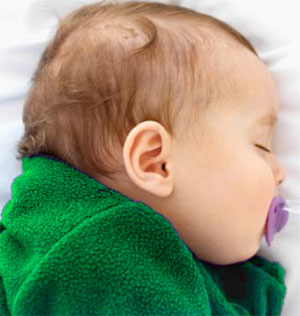RSV in Infants

RSV in infants shows up just like common cold and can hardly be differentiated from it. Majority of the children infected from RSV get over it without any difficulties but a few require intensive treatment. A study shows that more than 125,000 children in the United States are admitted in hospitals for treatment from complications due to RSV. RSV infection is one main cause for frequent hospitalization of children below one year of age. RSV can attack adults too. Often premature infants and babies born with lung or heart problems are more susceptible to RSV infection.
What is RSV in infants ?
RSV (Respiratory Syncytial Virus) is a common virus that usually strikes children by the time they are two years of age. Many a times it cannot be differentiated from the common cold. RSV usually shows up as a cold. RSV is the most common reason for severe lower respiratory tract infections in children below the age of one year. RSV leads to a mild respiratory infection accompanied with stuffy nose, discharge, cough and at times mild ear infection. The condition is self limiting and lasts up to a week or ten days. Severe infections of RSV can lead to asthma and wheezing problems in children.
Who is at risk of developing RSV ?
Infants below the age of six months are highly prone to RSV as their lungs are yet to fully develop. Infants in the following categories are more likely to develop acute RSV infections:
- Premature babies born four weeks before the expected date of delivery
- Infants born with lung diseases
- Infants born with heart problems
- Low birth weight of below 51/2 pounds
- Babies attending daycare
- Babies having school going siblings
- Multiple births
- Exposure to tobacco smoke and other sources of air pollution
- Family history of asthma.
Symptoms of RSV
- Runny nose
- Fever
- Rapid breathing
- Wheezing and/or a loud whistling sound while exhaling
- Breathlessness
- Contraction of abdominal muscles while breathing
- Continuous coughing
- Lips turn blue
- Poor feeding.
Treatment options for RSV
RSV infection if severe spreads very quickly and requires immediate care. Various treatment options offered for RSV:
- Mild level of RSV requires no treatment at all.
- In severe cases hospitalization is required mainly to bring down the fever, ear infection and accompanying discomforts.
- Medications are prescribed to bring down the infections and improve breathing.
Keep your baby comfortable during RSV infection
- Keep your baby adequately hydrated. If the baby is breast feeding then nurse him often.
- Put one or two drops of nasal saline solution in the nostril to aid loosening of mucus. Use a bulb syringe to suck out the mucus from his nostril.
- Raise his head and keep it in an elevated position, this will make it easier for him to breathe through a stuffy nose.
- Keep the baby free from cigarette smoke, fume, burning wood, fresh paint etc.
- Use a clean cool-mist vaporizer to aid in easy breathing.
Prevention of RSV
- Keep the infant away from people who are infected with cold.
- Keep your little one warm thus reducing chances of a cold attack.
- Wash your hands thoroughly after you touch another person infected with cold.
- Do not allow anyone to smoke near your baby.
- Keep your baby away from densely populated common places.
- In recent times a vaccination is available to prevent RSV. It is very expensive and thus is limited to infants with severe infection alone. Synagis is a monoclonal antibody against RSV. It can be administered along with regular vaccines.
Top of the Page: RSV in Infants
Tags:#RSV in infants
 Parenting
Parenting Stages of Growth
Precocious Puberty
Nutrition for Kids
Developmental Milestone
Empty Nest Syndrome
Infants
Sudden Infant Death Syndrome
Infant Gas Drops
Milk Allergy in Infants
Infant Reflux
Infant Nutrition
Infant Bathing
Infant Toy
Infant Colic
RSV in Infants
Asthma in Infants
Infant Brain Development
Babies
Baby Milestone
Baby Teething
Toddler Food Recipe
Baby Nursery Furniture
Baby Food Tip
Baby Monitor
Baby Burping
Children Care
 Regular Bedtime for Toddlers
Regular Bedtime for Toddlers Child Care
Kid Summer Camp
Kid Gym
Tween Parenting
Benefits of Breastfeeding
Oppositional Defiance Disorder
Attention Deficit Hyperactivity Disorder - ADHD
Kid Homework Help
Fine Motor Skill
Family Parenting
Single Parenting
Specialty Toy
Child Playhouse
Playgroup
Causes of Child Obesity
Autistic Child
Learning Disability
Toddler Activity
Activities for Toddlers
Child Safety Tip
Child Safety on the Net
Allergies in Toddlers
Top of the Page: RSV in Infants
Popularity Index: 100,864

